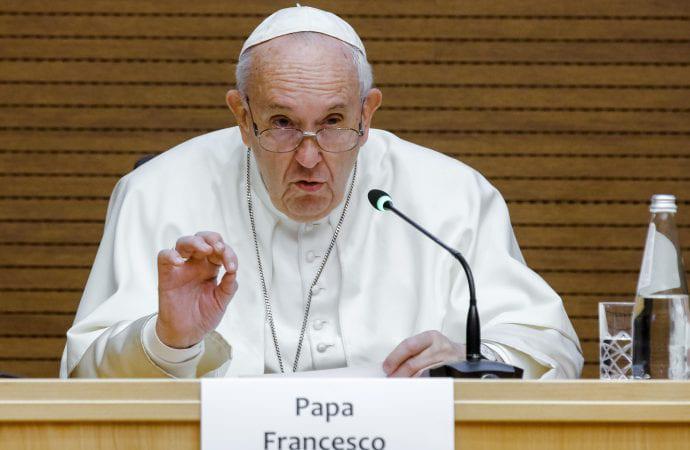|
Ending pontifical secret a milestone, but there’s accountability beyond law
By John L. Allen Jr.
Tuesday’s news that Pope Francis essentially has abolished the requirement of pontifical secrecy for clerical sexual abuse cases means that robust cooperation with civil authorities is now a cornerstone not only of Church practice, but also Church law. That’s an important distinction, because in the U.S. and some other parts of the Catholic world, the pontifical secret had already been reinterpreted by bishops and canon lawyers to permit such cooperation, seen as essential not merely in the interests of justice but also to prevent the Church from being exposed to both civil and criminal liability. As a result, while Maltese Archbishop Charles Scicluna was, in a sense, right in calling Tuesday’s moves “epochal,” they won’t change much operationally in the American Church. (The calculus is likely to be different in other parts of the world. For instance, Juan Carlos Cruz, a survivor of abuse at the hand of Chile’s most notorious pedophile priest, heralded Tuesday’s moves as a sea change for his country: “All these excuses of Chilean bishops and other parts of the world and the Curia, are over,” he said. “Today is an important day in transparency and justice for victims.”) For most American Catholics, the unfinished business of the abuse scandals isn’t cooperation with civil authorities, which, for the most part, has been a given for a couple of decades. It’s accountability for the cover-up as well as the crime, meaning sanctions for officials who were in a position to prevent abuse, or to punish abusers, and who failed to act. There was some movement in that direction too in Tuesday’s amendments to Church law, since, as Bishop Juan Ignacio Arrieta of the Vatican’s Pontifical Council for Legislative Texts, observed, the lifting of the pontifical secret applies not only to cases of clerical abuse, but also “conduct by ecclesiastical authorities that tended to silence or cover up” reports of abuse. The most immediate application of a new spirit of facing the cover-up as well as the crime, and one of particular interest to Americans, would be the case of ex-cardinal and ex-priest Theodore McCarrick. It’s now been 437 days, meaning one year, two months and 12 days, since the Vatican issued a statement saying Francis had ordered “a thorough study of the entire documentation present in the archives of the dicasteries and offices of the Holy See regarding the former Cardinal McCarrick, in order to ascertain all the relevant facts, to place them in their historical context and to evaluate them objectively.” The results of that study, the statement said, would be presented “in due course.” Quoting a line from Francis during his 2015 trip to the United States, the statement said: “Both abuse and its cover-up can no longer be tolerated, and different treatment for bishops who have committed or covered up abuse represents a form of clericalism that is no longer acceptable.” Latest rumors are that the study is likely to be published after the holidays, sometime in the new year. Sources involved in the drafting also caution that it’s unlikely to produce any “smoking gun,” meaning incontrovertible proof that a given official, either in Rome or the U.S., had certain knowledge of McCarrick’s misconduct and actively participated in a campaign to cover it up. Instead, the trail is likely to be more suggestive and indirect, cataloging people who’d perhaps been presented with warning signs or indirect reports, but nothing amounting to hard evidence. In other words, it’s likely to be more a story of inaction than action, regarding officials who may have felt incentives to remain as ignorant as possible. Of course, that doesn’t mean nothing can be done in light of whatever the report reveals. Criminal law is meant to establish a floor of accountability, not a ceiling. It’s not a zero/sum game, in which a given action is either criminal or it’s perfectly fine. In sports, coaches are fired all the time for performance that certainly isn’t criminal, just not up to snuff. Corporate CEOs lose their jobs over bad bottom lines, which doesn’t mean they’re going to jail, only that they’re not going to the corner office anymore. Naturally, the Church is neither a sports franchise nor a Fortune 500 company, but in this case the same point applies: Staying out of jail is hardly the only measure of effective leadership. Now that the Church’s criminal law has been amended, the next test of reform will be whether accountability measures short of criminal sanction are devised to fit cases in which there may not have been any nefarious intent, but where the system nevertheless broke down. Break down it did with McCarrick: Despite decades of whispering about potentially inappropriate goings-on, or at least conduct that ought to have raised red flags, McCarrick remained at the peak of ecclesiastical power for the better part of two decades. He didn’t do that by himself - his rise to the top, and his stay there, occurred with the help of others, and, to date, those other parties have not faced public consequences. Tuesday’s legislation, therefore, was an important way of consolidating what was already best practice in some parts of the Church, making it universal and irreversible. For those reasons, it marks an important milestone. What it’s not, however, is finishing the job. There’s more ground to cover, and the early part of 2020 shapes up as a decisive moment to see how close we are to getting there.
|
.
Any original material on these pages is copyright © BishopAccountability.org 2004. Reproduce freely with attribution.
